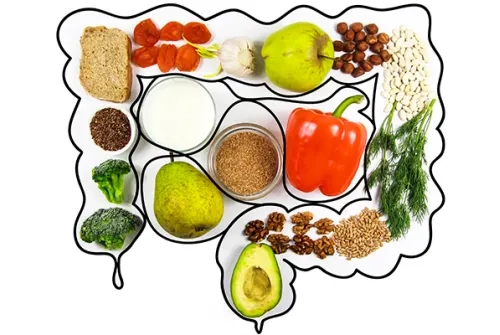Alo Yeditepe
Alo Yeditepe
What is Good for Diarrhea? How to Treat Diarrhea?
What is Diarrhea?
Diarrhea is a digestive system disease that manifests itself with increased frequency and fluidity of bowel movements. The patient needs to defecate frequently during the day and usually has watery, liquid or loose stools Diarrhea is a temporary problem unless there is an underlying disease.
The important thing is to ensure adequate fluid intake while the diarrhea continues. What needs to be taken into consideration at this point is that if the diarrhea is severe, bloody and has become chronic, a doctor should be consulted without wasting time. Another point that should be underlined is that more caution should be exercised in cases of diarrhea in the elderly and children.
What are the symptoms of diarrhea?
Symptoms of diarrhea may vary from person to person. It is possible to list the most common complaints as follows;
• Stool is usually liquid, loose or watery. In this way, defecation may occur many times during the day.
• Pain in the abdominal area, cramps, bloating or gas are among the complaints experienced.
• If the underlying cause of diarrhea is an infectious disease, fever is also observed along with diarrhea. In such a case, it is important to consult a physician without wasting time.
• Since fluid loss occurs with diarrhea, dry mouth and dry skin may also be observed due to dehydration. At the same time, urine output may decrease due to fluid loss.
• Diarrhea can also cause weakness and fatigue due to both fluid loss and inadequate nutritional intake.
What Causes Diarrhea?
Many problems, from digestive disorders to infections, from parasites to stress, can cause diarrhea.
Viral and bacterial infections caused by pathogens such as norovirus, rotavirus, E. coli and Salmonella can cause diarrhea. Food left out in the open or not stored under appropriate conditions, especially in the summer months, can cause food poisoning. Intestinal parasites such as amoebas and giardia can also cause diarrhea.
Some medications, especially antibiotics, can also cause diarrhea because they can affect the intestinal flora.
It is known that intense stress, which affects the whole body, also has an effect on the intestines. Therefore, the person's psychological structure can also affect bowel movements, causing diarrhea.
What are the Types of Diarrhea?
Acute Diarrhea
Sudden onset of acute diarrhea can usually be experienced due to reasons such as viral or bacterial diseases or food poisoning. Acute diarrhea can continue for several days.
Chronic Diarrhea
Diarrhea that lasts longer than two weeks and persists is defined as chronic diarrhea. This type of diarrhea is often linked to long-term digestive problems, inflammatory bowel diseases (such as Crohn's disease or ulcerative colitis) and celiac disease.
Osmotic Diarrhea
It is diarrhea that occurs when there are indigestible or insoluble substances in the intestines, such as lactose intolerance.
Secretory Diarrhea
It occurs as a result of excessive fluid secretion into the intestines. It is usually seen together with some medications and bacterial diseases.
Bleeding Diarrhea
In this case of diarrhea, which should be taken seriously, there is blood in the stool. Inflammatory bowel diseases or intestinal infections may be the underlying cause of bleeding diarrhea, which requires immediate medical attention.
Inflammatory Diarrhea
It is the diarrhea that we associate with inflammatory bowel diseases such as Crohn's disease or ulcerative colitis.
Antibiotic-Associated Diarrhea
Since the use of antibiotics can cause disruption of the normal intestinal flora, some people develop diarrhea due to antibiotic use.
What Foods Cause Diarrhea?
Food can play an effective role in the development of diarrhea for many reasons, from storage conditions to cooking, from cleanliness to the ingredients it contains. Especially people with sensitive digestive systems are more affected by these conditions. However, since the relationship between food and diarrhea may differ from person to person, it is important to pay attention to the points listed below.
• Raw or undercooked meat and seafood can cause diarrhea because they contain parasites and bacteria.
• Milk and dairy products can cause problems, especially in people with lactose intolerance. Those who know that they are sensitive to these products should be careful.
• Spicy and fatty foods can irritate the digestive system and cause gastrointestinal problems. Therefore, diarrhea may develop after consuming too much of these products.
• Consuming too much sugar, processed and packaged foods can cause diarrhea as well as some digestive problems.
• Consuming fruits and vegetables is extremely important for general health. However, in some cases, there is a risk of diarrhea due to the risk of bacterial contamination after consuming it raw.
• It should not be forgotten that raw eggs may also cause diarrhea due to the salmonella bacteria they may contain.
• Consuming artificial sweeteners such as sorbitol and mannitol is not recommended for general health. At the same time, there is a risk that artificial sweeteners may affect the digestive system and cause diarrhea.
• Alcohol and caffeinated drinks are known to increase bowel movement. Therefore, if these substances are consumed excessively or if there is sensitivity to these substances, diarrhea may develop.
What are the foods that are good for diarrhea?
In case of diarrhea, it is very important to pay attention to fluid intake. However, if diarrhea increases, worsens, fever develops, or bloody diarrhea occurs, a doctor should be consulted without delay.
However, consuming some foods during diarrhea can help during the disease process.
Rice: Since white rice is easy to digest, it can relax the intestines. Therefore, consumption of fat-free rice in porridge form may be helpful during the diarrhea process.
Apple: Apple prepared in puree form can help control bowel movements thanks to its high fiber content.
Bananas: Rich in potassium, bananas can help replace fluid loss due to diarrhea. They also help calm the digestive system.
Yogurt: Thanks to its probiotic properties, yogurt can help improve the digestive system and balance the intestinal flora.
Boiled Potato: It relieves intestinal disorders and since it is a simple carbohydrate to digest, it should preferably be consumed boiled, without adding oil and spices.
Soups: Chicken or vegetable soups, especially those prepared without fat, can help meet both the decreased fluid needs and nutritional needs in cases of vomiting and diarrhea.
What are the symptoms of dangerous diarrhoea?
Although the duration and form of diarrhea may vary depending on the underlying cause, some symptoms should be considered warning signs and a physician should be consulted.
Fluid and electrolyte loss: Severe thirst-dehydration, dizziness, dry mouth and decreased urination are among the symptoms of fluid and electrolyte loss.
High fever: Fever along with diarrhea is among the symptoms that should be taken seriously. This may be a symptom of an underlying infection or disease.
Long-term diarrhea: If there is no underlying problem, diarrhea is expected to go away on its own within a certain period of time, so lasting longer than 48 hours may indicate a problem. In this case, there may be a chronic problem.
Bloody stools: Dark colored stools, mucus or blood during diarrhea may be a sign of a serious disease or infection, so it should be taken seriously.
Severe abdominal pain: Although it may be normal to experience abdominal pain during diarrhea, if the pain is long-lasting and severe, it may indicate a serious problem.
Vomiting: Since frequent vomiting will disrupt the body's fluid balance and cause dehydration, it is useful to be careful if there is vomiting along with diarrhea.
Extreme fatigue: If adequate fluid intake cannot be achieved along with diarrhea, support may be required as severe electrolyte and fluid imbalances can cause extreme fatigue and weakness in the person.
What it is good for Diarrhea in Adults?
Treatment of diarrhea in adults often varies depending on its cause. If diarrhea is severe, chronic, or accompanied by other symptoms such as high fever or bloody stools, a physician should be consulted. Paying attention to the following points may help in the management of diarrhea.
Fluid consumption should be increased: Adequate fluid intake is at the top of the list of things to do during diarrhea control. Because with diarrhea, there is a loss of fluid in the body. To maintain this balance, it is important to consume drinks and water containing electrolytes.
Hand hygiene should be taken into consideration: During diarrhea, the person should pay attention to hand hygiene in order to protect both himself/herself and those around him/her. For this reason, hands should be washed frequently to protect against infections that will cause diarrhea and to prevent transmission in case of possible infection.
Fatty foods should be avoided: It is beneficial to stay away from fibrous foods that will increase bowel movements during diarrhea. It is also beneficial to limit fatty, spicy foods and dairy products.
Probiotics should be included: It may also be beneficial to take probiotics with the recommendation of a doctor during this period, as they can help regulate the intestinal flora.
One should try to rest: Especially if the source of diarrhea is an underlying disease, resting will be beneficial to strengthen the immune system.
What is Good for Diarrhea in Babies?
It is always best to seek professional advice when dealing with diarrhea, especially in newborn babies. Since any wrong medication or application may negatively affect the baby's health, it is important to act in accordance with the doctor's recommendations.
What is Good for Diarrhea in Children?
Children may experience diarrhea for many reasons, such as food allergies, diseases caused by viruses and bacteria, and inadequate hygiene. In this case, it is necessary to act in accordance with the doctor's recommendations. However, the following suggestions may also be beneficial.
• Fluid intake should be increased.
• Foods that are easy to digest should be preferred.
• Hand hygiene should be paid attention to.
What is Good for Diarrhea During Pregnancy?
Managing diarrhea during pregnancy is important to protect the health of the mother and the unborn child. Therefore, in cases of diarrhea during pregnancy, the physician must be informed, and if the diarrhea is severe, is accompanied by fever, and there is blood in the stool, a physician should be consulted without delay.
The following recommendations for treating diarrhea during pregnancy may be considered:
Fluid consumption should be increased: Consuming plenty of fluids is vital to compensate for fluid loss caused by diarrhea. Drinking water, electrolyte solutions (oral rehydration solutions), and light liquids such as vegetable or chicken broth may be helpful.
Easily digested foods should be preferred: Foods that do not put too much burden on the stomach, such as bananas, rice, applesauce and toast should be preferred. Spicy, fatty, fried products and dairy products should be avoided.
Attention should be paid to hygiene: To avoid foodborne diseases, hands should be washed frequently and food hygiene should be observed.
This content was prepared by Yeditepe University Hospitals Medical Editorial Board.
”
See Also
- What is a Liver Transplant, How is it Done? and Who is it For?
- What is Constipation? What Helps With Constipation?
- What is Hepatitis B? What are its symptoms? How is it Transmitted?
- How to Cleanse the Liver the Fastest?
- Who Gets Colon Cancer?
- What is Colostrum? What are the Benefits of Colostrum Milk?
- Stomach Cancer Causes, Symptoms and Treatment
- What is Colon (Intestinal) Cancer? Symptoms and Treatment
- What Causes Nausea? What is Good for Nausea?
- What is Heartburn? What is Good for Heartburn?
- What is Fatty Liver?
- What is a Probiotic? What Are Its Benefits?
- What Is Reflux?
- Non-Surgical Treatment of Reflux
- What are the Nutrients That Stress Digestion?
- What are Capsule Treatment Methods in Stomach, Small, and Large Intestine Screening?
- Gastroenterology Procedures
- Pay Attention When Consuming These Nutrients!
- Mediterranean Diet Prevents Developing Colon Cancer!
- Breakthrough Innovations in Colon Cancer
- Diarrhea and Constipation Increased in Those with Irritable Stomach
- I Was Waking Up With Stomach Pain, I Fell Better After Endoscopic Fundoplication
- Anemia, Constipation, and Vomiting of Unknown Cause Can Be Dangerous
- As the Western Diet Increases, So Does Stomach Cancer
- Ramadan Warning for Those Who Experience Stomach Disorders
- Causes and Treatment of Abdominal Bloating
- Hepatitis Disease Poses Risk for Esophageal Varices
- The Giant Stones In The Biliary Tract Of 71-Year-Old Patient Were Removed Without Surgery
- How Is Stomach Infection Transmitted?
- What is Gastroesophageal Reflux Disease?
- Capsule Endoscopy
- Stretta / Endoscopic Reflux Treatment
- Fundoplication Method / Endoscopic Reflux Treatment
- Throat Reflux
- Techniques and Applications Used in Gastroenterology
- Irritable Bowel Syndrome (IBS)
- How to Swallow the Drug?
- Non-Surgical Reflux Treatment
Alo Yeditepe




